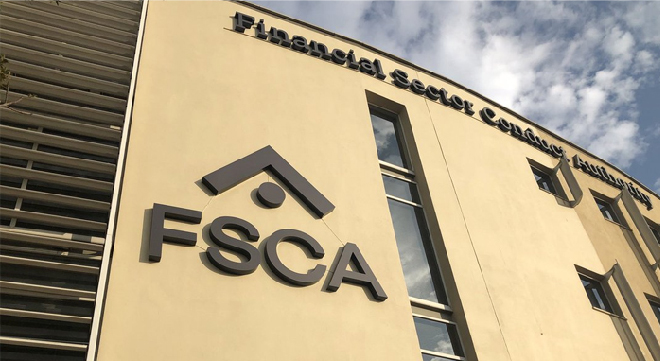Levies from the financial services sector contributed R837 million (2020: R827m) to the FSCA’s revenue of R927m (R926m) in the year to the end of March 2021, according to the authority’s annual report. The FSCA budgeted for revenue of R960m, but levy increases were some R40m lower than the budgeted R902m.
The financial intermediary (35%), pension (29%) and insurance (23%) sectors were the three main contributors to the FSCA’s levy income in the 2020/21 year, broadly in line with the situation in the previous financial year.
Operating costs increased from R892m to R914m. Of this, R488m (up from R467m) went to salaries, staff benefits, training and other staff expenses. A further R48m (R51m) was spent on executive management remuneration.
Other major expense items in 2020/21 were:
- General expenses: R82m (R94m)
- Building rentals: R77m (R74m)
- Contribution to the Office of the Pension Funds Adjudicator: R75m (R70m)
- Contribution to the Office of the FAIS Ombud: R57m (R64m)

The FSCA’s contingency and discretionary reserves increased to R134m (2020: R116m).
The contingency reserve is maintained at a maximum of 10% of levy and fee income, which is held to protect the FSCA against the risk of unforeseen events.
The discretionary reserve is a depository for fines and penalty income for funding consumer education and consumer protection-related expenses, according to the report.
The FSCA received R121m (2020: R170m) from fines and penalties, which is payable to National Treasury in terms of the Financial Sector Regulation Act.
The FSCA asked Treasury for permission to retain the penalties pending the implementation of the Levies Bill for transitional funding for consumer education. As at 31 March 2021, Treasury had granted “partial approval” for the FSCA to retain R19m for consumer education funding and R10m for establishing the Ombuds Council.
Cash flow
As the table below shows, the FSCA ended the 2020/21 financial year with cash and cash equivalents of R600m, up from R542m. Revenue derived from the financial services sector (R946m) made the biggest contribution to the authority’s cash inflow, while employee costs (R530m) were responsible for most of the outflow.

Staff incentives
The FSCA awarded 86.38% of its 570 full-time employees with performance bonuses in 2020/21. These incentives cost R25.4m.
“Due to the nature of its business and operating model, the FSCA does not have a long-term incentive plan in place. The FSCA adapts its rewards strategies on a continuous basis through benchmarking against industry practices to ensure relevance, competitiveness as it drives employee retention and drives new employee behaviour as outlined in its regulatory strategy,” according to the annual report.
Of the R48.7m in remuneration paid to 13 executives, R41.5m was in the form of basic salaries, R2.2m in incentives, R5m in leave, and R30 000 was for two long-service awards. Basic executive pay ranged from R1.7m to R3.9m, while the incentives ranged from R104 000 to R298 000.
According to the annual report, “Based on the economic circumstances at that time and the country being under the Covid-19 hardships, the [remuneration] committee resolved that the TMC [Transitional Management Committee] could pay short-term incentives to ensure retention of executives, considering the delays in the appointment of the commissioners and deputy commissioners.”




R3.7M pa average pay per executive?
Page 215 of the annual report sets out the executives’ remuneration packages. Two earned a total package of R5m, three got at least R4m, seven received R3m or more, and one got R1.9m.
Their 13 executives are earing an average of R 3,746 million per year? And they keep on trying to cut our fees and commissions? What a bunch of vultures. Where do i apply for a 9 to 5 job that pays me over R 300k per month, with full perks, paid holidays etc……..